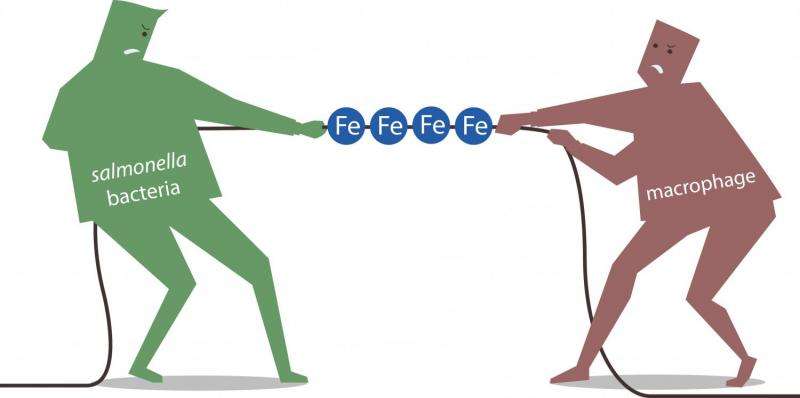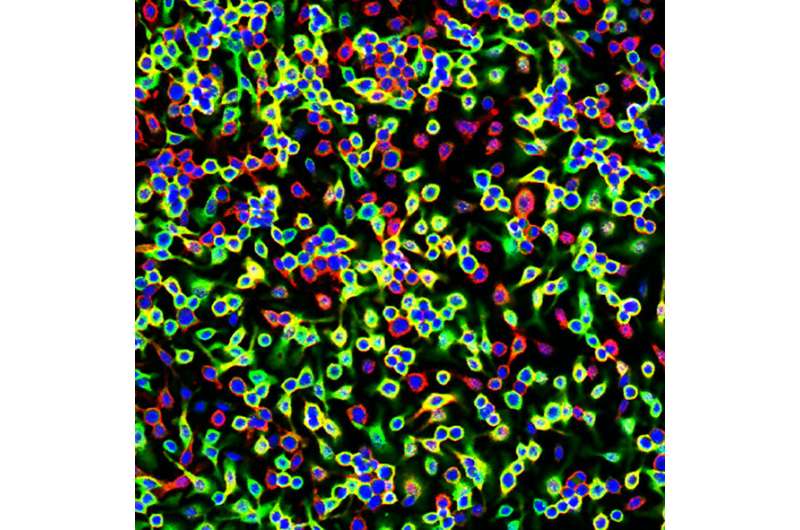Iron regulators join war on pathogens

Proteins responsible for controlling levels of iron in the body also play an important role in combatting infection, according to a study published today in Cell Host & Microbe.
Humans - along with all living organisms, including pathogens - need iron to survive: invading organisms try to highjack it from their hosts in order to thrive and multiply. Researchers at EMBL Heidelberg, and their colleagues, have now discovered that proteins responsible for helping the body maintain the correct levels of iron at a cellular level are also involved in helping to prevent this theft. These proteins form a system called IRP/IRE (iron regulatory protein/iron responsive element).
"The work we've been doing has uncovered a connection between two very important functions that are typically seen as separate: the body's innate immune system, and its iron metabolism," explains Matthias Hentze, co-author of the paper and Director of EMBL.
The team analysed how mice reacted to an infection by the Salmonella bacteria, depending on whether they had a functional IRP/IRE system or not. Mice lacking a functional IRP/IRE system from professional immune cells called macrophages did well as long as they were not infected, but when the Salmonella bacteria were introduced, they died. This showed that the iron regulatory system was crucial for the macrophages, the target-cells for this specific pathogen, to fight off the infection effectively.
"Withholding iron from an invading pathogen is an innate defence against infection," explains Bruno Galy, former Staff Scientist at EMBL-Heidelberg and currently group leader at the German Cancer Research Centre (DKFZ). "Our study reveals that the IRP/IRE system plays an important role in this defence."

The precise mechanisms through which the IRP/IRE system works in the macrophages will need further investigation, although the researchers have a number of theories.
One theory is that the IRP proteins help the macrophages produce a molecule called lipocalin 2, which is known to block bacteria from taking up iron from its host. Another idea is that the IRP/IRE system represses the expression of a protein called ferritin. Ferritin is present in cells as a kind of compartment to store iron until it is needed. Invading bacteria get access to these iron supplies and if the IRP proteins are not present, the cell will store much more iron than required - thus providing valuable nutrients for invaders.
The group now plan to carry out further investigations to find out if the IRP/IRE system is also important for other types of bacteria, and other types of infection, such as viruses or parasites. They also hope to discover if the IRP/IRE system has a role to play in other types of immune response, such as inflammation. This immune response is implicated in the progress of human diseases such as cancer or atherosclerosis so a better understanding of its mechanisms could have implications for research into new treatments.
More information: Nairz, Ferring-Appel, Casarrubea, et al. Cell Host and Microbes, 16 July 2015. DOI: 10.1016/j.chom.2015.06.017
















